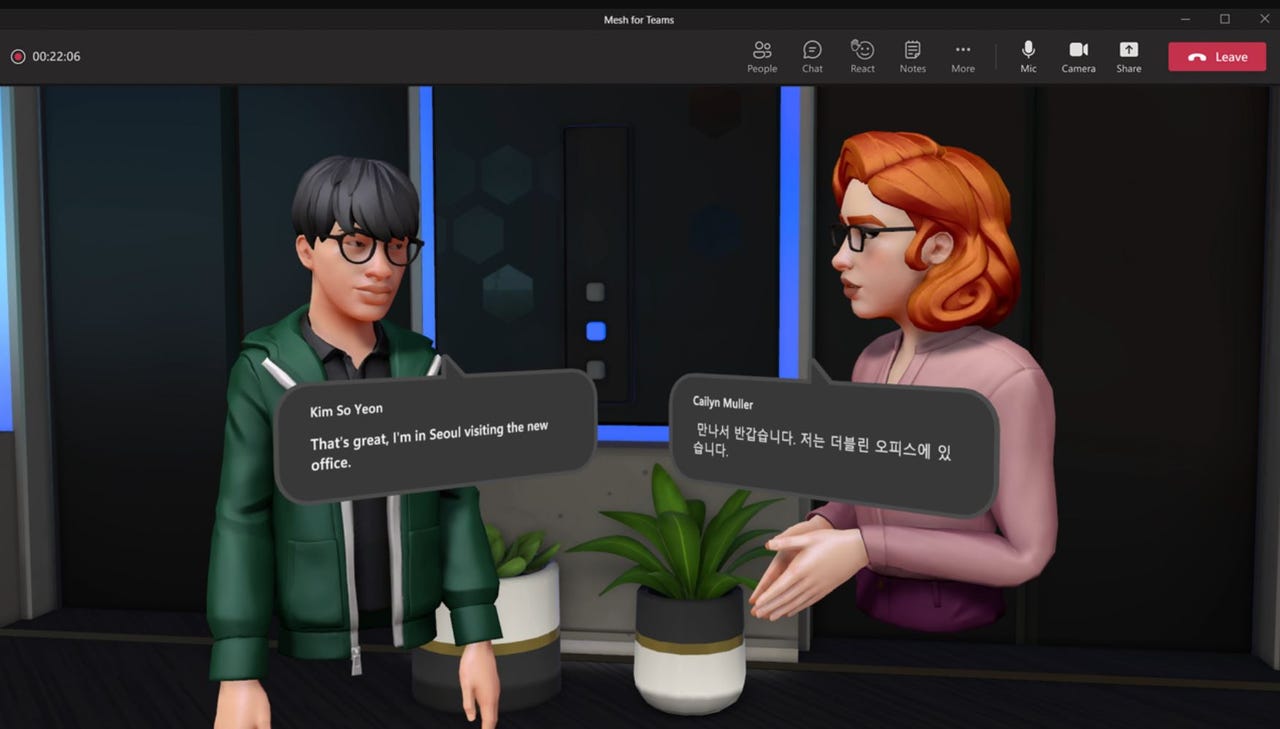Microsoft to extend its 'enterprise metaverse' strategy with Mesh for Teams


Meta (the company formerly known as Facebook) is not the only one trying to carve out a position for itself as a metaverse-savvy company. Microsoft is in this space, too -- coming at it from a more enterprise-centric perspective. At the Microsoft Ignite IT pro conference this week, officials are beating the metaverse drum by announcing more details around Microsoft's plans to bring Mesh to its Teams collaboration platform.
At its Build developers conference in May, Microsoft introduced its Mesh mixed-reality collaboration platform powered by Azure. At that time, officials said Microsoft would be bringing Mesh to Teams. Today, Microsoft officials said Mesh for Teams will begin rolling out in preview in 2022 with a set of pre-built immersive spaces for things like meetings and social mixers. Over time, Microsoft will add tools to allow customers to build their own custom spaces.
Microsoft is describing Mesh for Teams as a feature of Teams that will "combine the mixed-reality capabilities of Microsoft Mesh, which allows people in different physical locations to join collaborative and shared holographic experiences, with the productivity tools of Teams, where people can join virtual meetings, send chats, collaborate on shared documents, and more."
Microsoft officials said they believe people will feel more engaged and involved in an immersive experience if they can share a virtual space where they exist as avatars (and one day, holograms). People will be able to access Mesh for Teams not just from mixed-reality headsets like HoloLens, but also via standard smartphones and laptops.
If you're wondering whether this vision appeals at all to business users, Microsoft and partner Accenture's answer is yes. Microsoft has been working with Accenture for several years to build a virtual campus for Accenture in AltspaceVR -- nicknamed the Nth Floor -- where employees could meet for coffee, presentations, parties, and other similar events. The "ultimate use case" Accenture found was onboarding new employees in One Accenture Park, with its virtual conference rooms, board rooms, and more.
This isn't the first time that Microsoft has tried to comingle mixed-reality and its Office products. In 2018, Microsoft introduced a preview of "SharePoint Spaces," a capability that would allow SharePoint users to create and consume mixed-reality 3D "spaces, where they could visualize and interact with data and product models." A spokesperson said the company is "exploring opportunities to bring Mesh for Microsoft Teams functionality to SharePoint Spaces."
The "enterprise" angle of Microsoft's take on metaverse involves knowledge workers and things being represented by their digital twins. In this virtual world, people can "gather to communicate, collaborate, and share with personal virtual presence on any device," in Microsoft's words. Companies will be able to build their own immersive spaces/metaverses within Teams. These kinds of metaverses become yet another way for workers to collaborate -- in addition to chats, emails, video calls and face-to-face meetings.
Digital twins and Azure IoT are only the tip of Microsoft's metaverse technology stack. Microsoft officials are carving out a strategy where everything from Azure Maps and the Power Platform, to Azure Synapse Analytics and Azure AI plus Autonomous Systems, could play a role in helping customers create and use their own business metaverses.